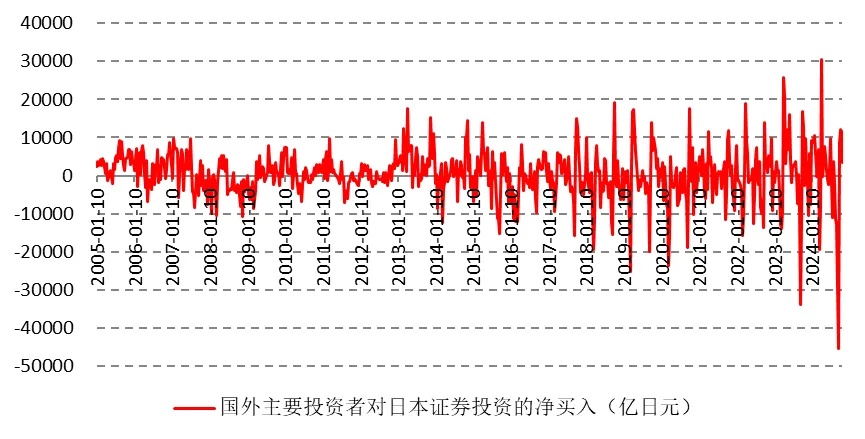Since mid-July, the Japanese stock market has entered a stage of high volatility, during which a series of uncertain factors such as the rate hike of the Bank of Japan, the violent fluctuation of the yen exchange rate and the "Trump deal" ushered in the US election.
From the perspective of the Japanese stock market, if the Trump administration brings reflation and the appreciation of the US dollar, then Japan will face greater pressure of capital outflow.
Economic slowdown will continue
From the perspective of stock pricing logic, it is inseparable from corporate profits and risk premiums, both of which are inseparable from the fundamentals of economic growth. Going back to the fundamentals of Japan's economic growth, we can see that GDP growth is slowing down. Generally speaking, it is difficult to have a bull market, unless it is a "stock bubble" caused by excessive liquidity.
The data showed that Japan's GDP grew 0.3% year-on-year in the third quarter, ending two consecutive quarters of year-on-year decline. Higher consumer spending on vehicles helped boost economic growth in the quarter after automakers who had halted production due to the testing scandal resumed production.
Data show that in September, the year-on-year growth rate of Japanese commercial sales slowed to 0.9%, the slowest growth rate in April. In addition, in September, the monthly consumption expenditure of Japanese households with two or more people actually fell by 1.1% year-on-year, which means that private consumption began to weaken at the end of the third quarter.
In terms of foreign trade, under the background of changing global economy, the international trade situation is grim. Japan's position in global supply chains, especially in key industries such as semiconductors and automobiles, makes it more vulnerable to changes in the external environment. In addition, global inflationary pressures have also affected Japan's import prices, further suppressing the economic recovery. Data show that Japan's exports in October increased by 3.1% compared with the same period of last year, and the growth rate was still low. There was a negative growth in September.
The depreciation of the yen brings capital outflow pressure
Previously, the depreciation of the yen stimulated exports, but since the second quarter of this year, due to the slowdown of global economic growth and the rising trade friction, the depreciation of the yen has weakened the boost to exports, but instead brought imported inflationary pressure, which led the Bank of Japan to launch the rate hike at the end of July. Therefore, in the future, the depreciation of the yen may be negative for the stock market.
As Japan's slow economic growth has aggravated the phenomenon of capital outflow, the yen has been further under pressure and mired in depreciation. In the third quarter, Japan's direct investment and securities investment flowed out of 4.3 trillion yuan and 12.2 trillion yuan respectively, far exceeding the level of the first and second quarters of this year.
Japan also attracts the lowest direct investment among major economies. Since 1996, the outflow of Japanese direct investment has exceeded the inflow in almost every quarter.
The picture shows the changes in net purchases of Japanese securities investments by major foreign investors

Buybacks may bring some support
According to data from Japan Exchange Group, as of November 8 this year, Japanese companies have repurchased 6 trillion yen of shares, far exceeding last year's 4.9 trillion yen. Historically, seasonal benefits have provided support for the stock market. However, the rise of Japanese stock market is driven by corporate profits, liquidity and risk premiums, all of which are inseparable from fundamentals such as economic growth, monetary policy and international capital retention.
From the perspective of economic growth, the economy has slowed down in the third quarter, and may further slow down in the fourth quarter amid the slowdown in consumption. The Bank of Japan's rate hike is very uncertain, and the Japanese stock market does not see a strong upward driving force for the time being.
To sum up, the rise of Japanese stock market in recent years is mainly caused by international capital inflows. Although the yen continues to depreciate, European and American investors have flowed into Japanese stock market driven by carry trading and diversified allocation.
However, this inflow is based on the premise of Japan's economic growth and getting rid of deflation. Therefore, under the background that Japan's economic slowdown will continue, the depreciation of the yen and inflationary pressure will have a negative impact on the Japanese stock market.
$NQ100 Index Main 2412 (NQmain) $$Dow Jones Index Main 2412 (YMmain) $$SP500 Index Main 2412 (ESmain) $$Japanese Yen Main 2412 (JPYmain) $$SGX Nikkei Main 2412 (NKmain) $
Comments
huge buybacks in US stocks